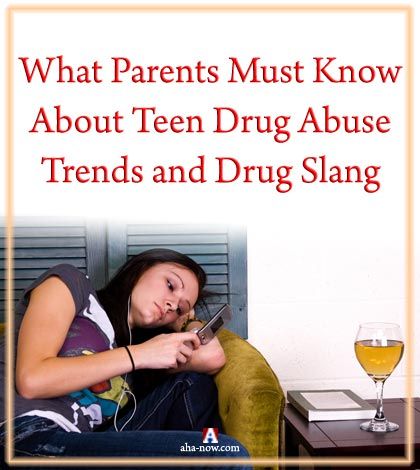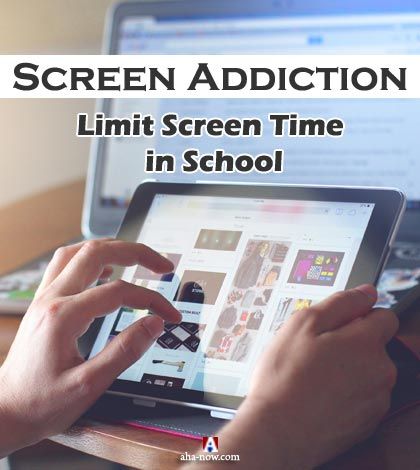What Parents Must Know About Teen Drug Abuse Trends and Drug Slang

Table of Contents
One of the worst fears parents have is that of their teens getting addicted to drugs. If you too are a parent of a teenager or young adult, then you must keep yourself abreast with the latest drug abuse trends and the drug slang in use among the kids. This sponsored post updates you with the current drug-related trends and vocabulary. ~ Ed.
If a loved one started using drugs, you would want to get help for him or her right away.
Unfortunately, the ever-growing drug slang vocabulary and ever-changing trends in drug abuse make it difficult to recognize the signs.
At the drug treatment centers, we’ve seen parents go unaware that a child is speaking about certain drugs in code in their presence. Teens are especially susceptible to drug use, and access to substances may be easier than you think.
Teens and Substance Abuse
It may or may not come as a surprise to you that a large number of individuals under 18 abuse substances such as alcohol, marijuana, illicit drugs and prescription drugs.
The number of young users has dropped slightly in the last few years, but substance abuse among teens is still extremely prevalent.
Unfortunately, most teens can easily access many harmful substances, no matter where you live in the country.
Why Do Teens Use Drugs
Teens begin – and sometimes continue – using drugs and alcohol for a number of reasons, including, but not limited to:
- Popularity: Teenagers are at a volatile point in their lives. They are trying to form an identity and climb the social ladder, so they are more easily influenced by outside pressure. It is common for high schoolers to experiment with harmful substances because their peers are doing it and they want to fit in.
- Rebellion: Hormonal changes and the frustrations of feeling as though they lack control over their own lives can cause teens to act out in irrational, rebellious ways. Drugs are a major taboo, which can make them appealing to those wanting to break the rules. Drugs and alcohol can also offer a form of escape and create feelings of euphoria or sedation.
- Experimentation: Some teens like the experimental aspect of drugs. Youth is a time to “find yourself.” Many teens have convinced themselves that drugs will open their minds to new feelings and perspectives, but they often forget to consider the harmful consequences.
- Competition: Teens are under a lot of pressure to perform and do their best. Student athletes abuse drugs more than any other category of student. Some use performance-enhancing steroids to build muscle mass, while other student-athletes become addicted to painkillers after injuries and surgeries. Elsewhere, other students are using stimulants like Adderall for academic success. Stimulants alter the brain’s neuro-chemistry to help with concentration, but repeated use can cause major health issues.
Where Can Teens Access Drugs
It is hard for some parents to realize how easy it can be for teens to get their hands on harmful substances.
Alcohol, the most popular substance used by teens, can be found in grocery and liquor stores, and teens will only need to find one person of legal age to buy all the alcohol they can afford.
Harder substances that are not available for legal purchase can be found at parties, through friends or even online.
Marijuana and ecstasy are unfortunately becoming increasingly popular among teenagers for the blissful feelings they induce. Dealers know that younger individuals are interested in these substances, and make them more easily available.
For some teens, all they have to do is look in the medicine cabinet. Prescription drugs may contain opioids or other addictive substances. Once teens try these pills, they may go to extreme measures to get more.
In the case of prescription painkiller abuse, some users may turn to street drugs like heroin when the pill supply runs out.
Signs Your Child Might Be Using
Determining whether your teen or young adult child is abusing drugs or alcohol can be difficult.
Many of the symptoms of substance abuse are also symptoms of fatigue, a common issue among overworked youth.
If you suspect your child is using, try observing them more closely and checking in on them through more heart-to-heart discussions.
Signs of drug or alcohol abuse include:
- Change in eating habits
- Sudden lack of focus
- Declining school performance
- Weakening communication about activities and hobbies
- Defensive attitude
- Use of drug slang
Trends in Drug Abuse
The drug market is much like any other market. New substances appear on the scene promising better highs or longer-lasting effects.
Staying on top of the latest drug trends can help you keep an eye out for signs that your teen or other loved one is using.
Extremely harmful synthetic opioids are showing up in states all across the U.S. These are often extremely potent and some are originally made for the sedation of large animals that can cause an overdose when used by humans.
Recently, a new drug concoction is gaining popularity in the Gulf Coast. “Grey Death,” as it’s referred to on the streets, looks like concrete mixing powder and contains several potent opioids, including heroin and fentanyl.
Similarly, in Georgia, the DEA discovered and banned a synthetic opioid called “pink” – aptly named for its color. The schedule I drug, which has been seized in its powder and pill forms, has caused nearly 50 deaths.
The National Institute of Drug Abuse has a page dedicated to emerging drug trends, and alerts stay up-to-date with all of the recent trends in substance abuse.
Examples of Current Drug Slang Vocabulary
Learning to recognize the jargon that goes along with substance abuse can be an effective way to recognize when a loved one might be using.
Terms such as candy, glass, snow and brown sugar might not mean what you think. If you would like to study the slang terms for several dozen street and prescription drugs, then visit this expansive online drug slang dictionary.
Disclaimer: Though the views expressed are of the author’s own, this article has been checked for its authenticity of information and resource links provided for a better and deeper understanding of the subject matter. However, you're suggested to make your diligent research and consult subject experts to decide what is best for you. If you spot any factual errors, spelling, or grammatical mistakes in the article, please report at [email protected]. Thanks.











Good topic to discuss the right time. Keep follow your teens activities. Teens have a curiosity to try. They think just try but it fall on regular. Talk with your children and educate them about substance abuses.
This is a topic that needs more discussion. Kudos to AhaNow for addressing this. It’s soooo important. Thanks Harleena for sharing this!